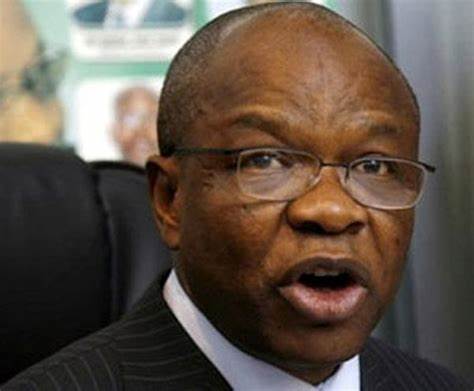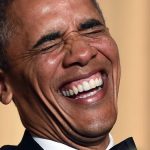A few months ago, Maurice Iwu came on a charm offensive to the Media Trust corporate headquarters in Abuja. The backdrop was that his tenure was about to expire and the electoral Czar detested by most Nigerians was desperate for the renewal of his position. Iwu attempted to present himself as misunderstood, certainly maligned by some politicians but well-meaning. He engaged in a revisionist remembrance of recent electoral events and times we all lived through: from the conspiracy against Atiku Abubakar; the acquiescence with Obasanjo’s intrigues in serially subverting the electoral process to the fact that INEC awarded Andy Uba more votes than the registered voters in 2007 in Anambra state.
What stood out was the pitiable sight of a thoroughly discredited man that has chosen to combatively live in denial almost as if he went through a personality- altering lobotomy. Maurice Iwu was desperate to return as INEC chief and employed various tactics, from replying almost every criticism in the media to renting crowds to sing his praises. And like a thief who knew how to distribute portions of the loot to ensure that others were also complicit, he even got leading members of the political elite in the National Assembly and in the Executive to root for his retention. We have witnessed how Senators who were supposedly in-charge of INEC oversight, were rooting for his retention, just as state governors were buying advertisement space in newspapers to congratulate him on his birthday. It would have surprised, until one recollects that it was Iwu that assisted to midwife the badly-rigged elections which brought them to office in the first place.
In the end, Acting President Jonathan chose not to re-appoint Maurice Iwu. There were many factors at play which sealed the fate of the most controversial electoral chief in recent Nigerian history. The truth is that instinctively, Goodluck Jonathan would have been happy to return the man, having been a beneficiary of his “largess” of a rigged election, as vice president and a PDP member.
However, Jonathan needed to show the Americans that he was embarking on a process of sanitization of the nation’s electoral system to continue to be in the good books of the “international community”. There is also the “small matter” of his own interest in running for president in 2011, which might be enhanced by such a step. Besides, there is also the domestic constituency of NGOs and vocal critics who have demanded the removal of Iwu, who needed to be appeased because they are a vital component of the project for Jonathans presidential ambition and project for 2011.
In Jonathans estimation, if Maurice Iwu is sacrificed and he eventually chooses to run in 2011, these vocal elements who have a long-standing media constituency could become his allies to fight the PDP leadership’s insistence that power has been zoned to the North. The removal of Maurice Iwu has generally been positively received around Nigeria and it is a sign of the depth of dishonour reigning inside that electoral body that the acting chairman, Philip Umeadi, who has a previous record of a gung-ho defence of actions taken by Iwu, suddenly remembered that he was not really in good terms with the man. Even amongst members of an elections-rigging commission, there was expected to be a modicum of honour. But living with an equally worrisome delusion that he might be appointed the next substantive INEC chairman, Philip Umeadi chose to contemptuouslythe back of a man that was already thrown off a perch that he so desperately wanted to retain. It speaks poorly of our nation’s leadership recruitment regime that it is characters as controversial as Maurice Iwu and Philip Umeadi that will be given the assignment to supervise Nigeria’s elections.
They made a complete mess of it. And when that is hitched to the characters we recruit in the political system, it is no wonder that Nigeria’s car continues to be driven in reverse gear by drivers who seem permanently to be on drugs. That is why progress has eluded us in so many vital areas, especially since the return to civil rule in 1999. Those, like General Buhari, who cautioned against jubilation because of the removal of Maurice Iwu, are right. The man while being very culpable, is nevertheless, not singularly responsible for the nation’s electoral crisis. One point that I have argued here, is that as a Political Scientist and Journalist, it will be very difficult for the ruling regime and party, to accept an electoral reforms regime leading to genuinely free and fair elections for the simple reason that wherever there is a preponderance of population of Nigerians, they do not tend to vote for the PDP. Just check it out: they don’t vote PDP in Lagos, Kano, Onitsha, Maiduguri, Ibadan, Sokoto, Kaduna, and other urban cities, save a few. It is only a patriotic national movement, with critical international support, that can force such a process.
But as we saw with the massively rigged elections o f 2007, if we do not act nationally and build a people’s movement for a genuine electoral reform, the international community will make= the right noise for a while and then continue business as usual with whoever is rigged into power by a compromised electoral commission. The African peasants say that our rice will cook only in our pot, meaning that we must master our own destiny, including the electoral, and not wait for outside prodding. The removal of Maurice Iwu is therefore like the tale of Ali Baba and the forty thieves; everybody was jubilant that Ali Baba has left the scene but they forgot about the forty thieves. Things will remain pretty much the same.
Plateau State: The story of Yusuf and Ezekiel: From London with love One of my favourite haunts in London is the Victoria Pub (AKA Tah Ndi) on Queensbridge Road, in the Eastern part of the city. The grilled fish and plantains as well as the oxtail pepper soup are always a delight, within an ambience of good African music and the habitues nostalgia for their homelands. Two Thursdays ago, I went back for my helping of grilled fish when I overheard two guys speaking in Hausa. I moved close to know who they were; one was Yusuf a Hausa (and a Muslim) and the other was Ezekiel (a Christian). “We are both from Jos”, they told me. Knowing how tragic life has become in their city and the deep-seated angst on both sides of the divide, I did not ask them any questions about Jos. Yusuf was drinking Coca Cola while his friend drank beer. The crowning moment for me was when their plate of fish and plantains was served; they actually ate together from the same plate! I was moved by the experience and that gave me hope that we can still find a silver lining in the very dark clouds of mistrust, prejudice and tragic killings enveloping good old Jos and other parts of our country. Yusuf and Ezekiel taught lessons of brotherhood in London which must be re-discovered at home.


